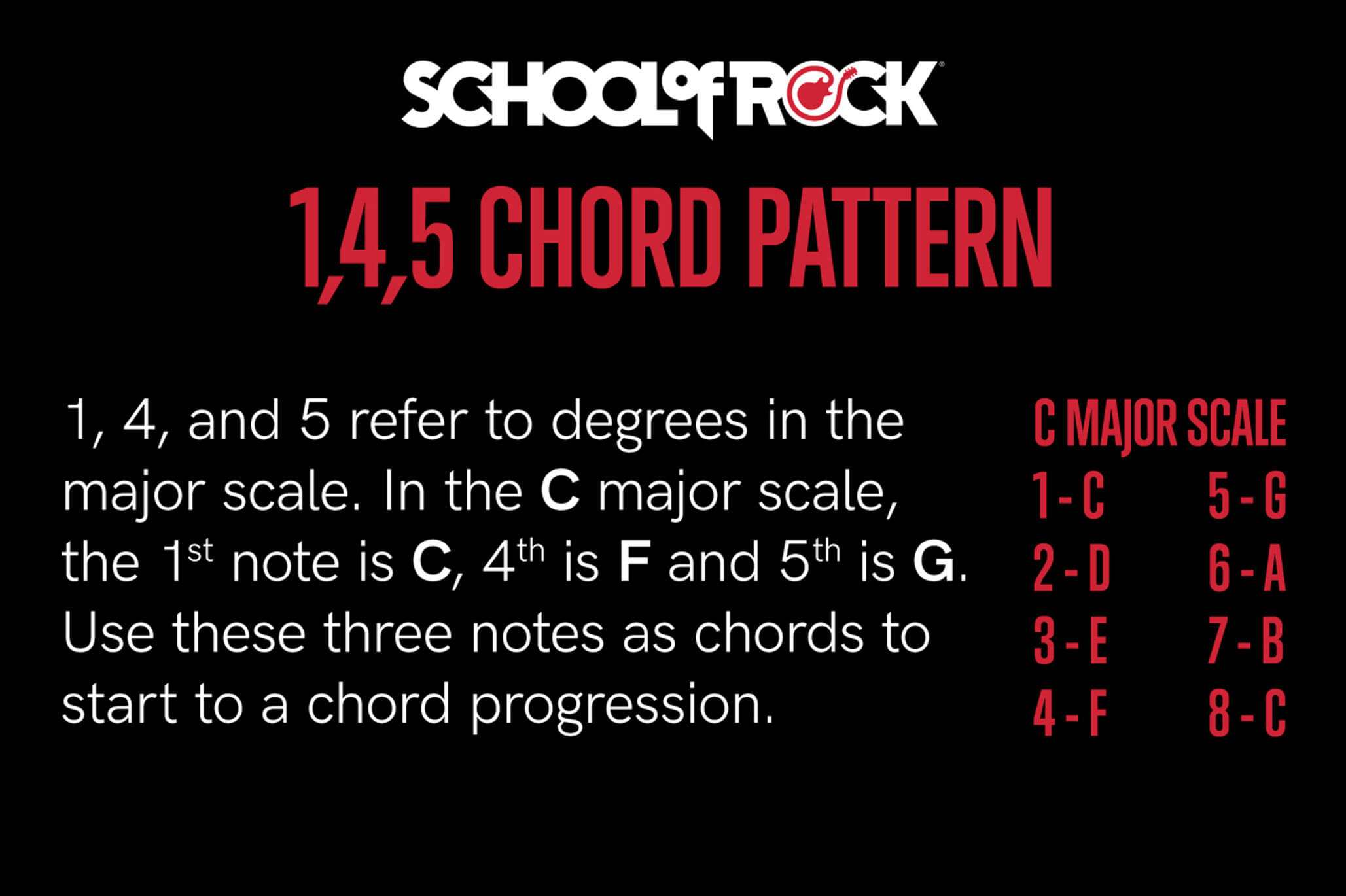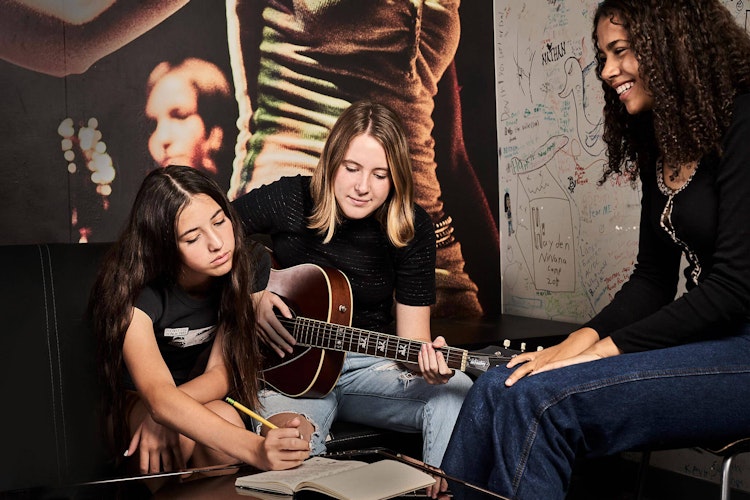Anyone can write a song! But if you want to write great songs and make a living as a songwriter, there are some basic skills to learn that will put you firmly on the road to being a successful songwriter.
Think about the songs you love – what makes you love them? A melody catches your ear, a lyric moves you to tears or lifts you up, and a funky beat makes you want to dance – great songs touch you in these ways.
Where do you imagine your songs being played? Are you writing for yourself? Pitching to artists, film, TV, and other media? Is writing for Musical Theatre your passion? Though each of these genres have differences in style, writing a great song will always include the same elements: music (melody and chords), lyrics, and something that only you can bring. Keep reading to find out!

Getting Started
You can start with an idea, a title, a lyric line, a melody line, or even a cool chord pattern. Once something comes to you, document it! Record it on your phone, write it down, or save it in some way! These little gems are the start of any great songwriter’s next hit song! Journey’s Jonathan Cain started writing the first four lines of “Faithfully” on a napkin while on his tour bus.
TIPS
- Keep a journal of titles, ideas, cool chords, etc.
- Set aside a consistent time to write - 15-30 minutes a day will set a habit into motion!
- Go where you feel most inspired, the beach, a café, etc. Sometimes it is best to leave the house and ditch your regular routines. Also, new surroundings inspire new ideas – you might be at a park and hear a conversation that inspires a lyric.
- Listen to a lot of music and analyze what works.

Song Form and Music Theory
Most rock and pop songs use the simple verse-hook-verse-hook-bridge-hook method. Some examples include “Dancin’ in the Dark” by Bruce Springsteen and “Heartbreaker” by Geoff Gill and Cliff Wade for Pat Benatar.
Many songs also have a pre-chorus like “Rolling in The Deep” written by Adele and Paul Epworth and “You Know That I’m No Good” by Amy Winehouse. With these songs (as with many others), there are instrumental breaks instead of a bridge. As a songwriter, you can be creative and follow songs that inspire you.
The 1-4-5 pattern is the basis for most songs though it can be embellished with minor 3rd and 6th chords as well as major or minor 7th chords. You can always start simple and embellish later or you can start with a chord voicing that inspires a cool melody and lyric and go from there.
Lyrics and music have to be congruent: powerful anthem-like music needs an anthem-like lyric. Think “We Will Rock You” written by Queen, Brian May, and Jason Paul Brown, or “Sisters Are Doin' It for Themselves” written by Annie Lennox and Dave Stewart. These songs usually use a simple, 1-4-5 chord progression in a major key.

Working with Others & Working Alone
Imagine Dragon’s hit song “Believer” was written by Dan Reynolds, Wayne Sermon, Ben McKee, Daniel Platzman, Justin Tranter, and Mattias Larsson. Whew – that’s a lot of writers! Songwriting alone can be a challenge and if you find you need some input or if you’re better at music than lyrics, consider collaborating with others.
Pros and Cons of Writing Alone
- Pro – It’s your song idea and you don’t have to negotiate. You get to make all the creative decisions.
- Con – If you get stuck you may stay stuck, and you don’t have the benefit of another perspective.
Pros and Cons of Collaborating
- Pro – You have the benefit of another writer’s ideas and expertise as either a composer or lyricist.
- Con – You may need to make creative concessions. That said, you will learn to be open to other points of view, successfully negotiate and learn how to communicate respectfully. All good skills to develop!
Additional Tips for Collaborating as a Songwriter
- Make sure you have a good relationship with a collaborator.
- Communicate early on and discuss each other’s expectations.
What Do You Bring?
Writing a song to express, not impress, is what will make you a successful songwriter. Take time to learn more about the songs you love. How do they impact you? Borrow ideas and take inspiration from those songs and songwriters but don’t imitate. Be distinctly you.
About the Author
Roz Esposito is a singer-songwriter and vocal coach at School of Rock Huntington Beach.






